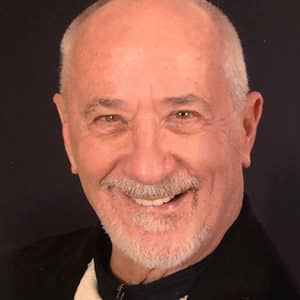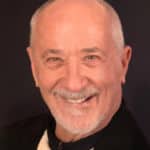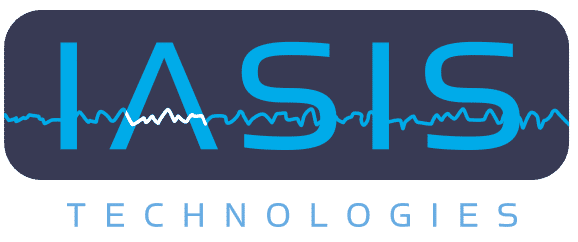The Caregiver Dilemma, Ethics in MCN Treatment
The Caregiver Dilemma, Ethics in MCN Treatment
The ACE Survey and Developmental Trauma Disorder (DTD) are two significant resources for understanding the cause of many health problems in our society. Dr. Felitti’s video illustrates a dilemma for Healthcare providers 1. Information we don’t assess, just like most of the medical professionals. Things that bring the client to the office that are the symptoms of childhood trauma.
ICP’s will have this dilemma and not know why or what is being detoxed other than a symptom but the ACE gives us fundamental sensitive news about the client, maybe as important as other MORs. It may tell us more than we may want to know. I recommend you watch his “You Tube” briefing “Dr. Felitti’s Adverse Childhood Experiences.” He debriefs his research on the magnitude of dysfunctional parents and childhood trauma. The following notes are:
Healthcare professionals fail to inquire if their patients have been in an environment that maybe sending them to get medical care. If they were asked there would decrease their MD visit by 34% and their emergency room visits by 11%. Failure to rectify the impact on high scores can lead to: 1. reduces ones life by 20 years. 2. Vast increase in suicides. A high ACE score increases one’s chances of “Suicide” by 4,600% compared to a person with a zero score on the test.
High scores lead to the following: 1. Negative coping skills. (Addictions , smoking) 2. Biomedical diseases. 3. Epigenetics issues ( bad gene switches).4. Excessive weight problems.
He eludes to two treatments of value: 1. Medical hypnosis. 2. EMDR. I Have studied EMDR and some of my clients commented on treatments by other therapist; “It didn’t help me” or “ it made me worse”. It has its value at times for some cases, I see nothing better than Iasis as an intervention. It out performed my hypnosis and Vagal therapies In my last client’s dealing with anxiety fog. Six IASIS MCN treatments terminated the anxiety fog for a first responder.
I use Vagal therapies: emotional freedom technique (EFT), deep breathing, prayer/meditation positions, trauma yoga, relaxation techniques, music, equine assisted, for clients to use between sessions for relaxation and resetting the vagus nerve but they don’t have the sustaining impact IASIS MCN is presenting.
Developmental Trauma Disorder & Childhood Diagnosis
Developmental Trauma Disorder (DTD) is not listed in the DSM yet, but Dr van der Kolk sees it coming. The VA nor the Military accepts this as a diagnosis because it’s not in the DSM 5. I believe their high suicide rate would decrease significantly if responded to, but that’s another story. Dr. Kolk also believes that 34 childhood diagnosis would fall under DTD. I strongly agree because I have treated children that were in PTSD therapy by other therapist for years having made no or negative progress. DTD (systemic) is trauma impacting the development growth of the brain, PTSD (behavior) is when an event activates the brain stem’s defensive reaction systems. It’s like a tire wearing out too soon (behavior) because the wheels aren’t aligned properly (systemic).
I have pondered the use of the Brain Gage in assessing DTD. I think ICPs need to assess for DTD in any child they see or adult with PTSD. If we know abuse is a factor in a child’s behavior, Child Protection Services (CPS) has to be notified. This creates a notification and parental dilemma, therapist and licensed professionals have a duty to warn.
I hope the brain gage will help identify these issues, some researchers report the brain actually develops differently under trauma. As caregivers excellence or continual improvement keeps us looking into the future to improve our services. After a conversation with another ICP on IASIS MCN Neurofeedback being cumulative plus remembering less is more, there will be those we think need more but but less intensity with more sessions in the case of DTD plus adult trauma I will treat cautiously until the data tells me more.
Dr. Alexander McFarlane’s, cogent remarks: “PTSD is a systemic Illness”. One reason is the more you have adrenaline and cortisol in your blood stream you are more apt to have inflammatory hormones and they can cause small blood vessel swelling and atrophy in the brain. The entire body now becomes susceptible to wear and tear because of having stress hormones too long. Dr. Alexander also states that trauma sensitizes the brain for the next trauma event which results in increased impact, more damage. By adding DTD to adult trauma one could have the worse case.
This is why first responders that will continue in the trauma world need treatments to filter out the past and preparation for the next trauma event that they will witness because of there occupation. Knowing this information, management must protect their staff and ICPs can offer the Brain Gage for continued assessment periodically and then IASIS MCN treatment as needed when abnormalities are detected.
I recognized the DTD problem when treating vets with talk therapy. The therapy would stagnate until I assessed for childhood trauma. Then I realized I had to stop using insight talk therapy and move to Vagal therapies and fortunately, I found IASIS MCN treatment as an intervention. After this discovery, I assess with the ACE plus additional questions before any intervention is initiated. When the ACE is utilized on a child and abuse is detected, licensed professional are required to report to Child Protection Services or law enforcement, thus a marriage and family therapist should be used for these procedures and keep ICPs out of the parental issues that can a rise. Dr. Kolk forecast 25% of children are abused.
Iasis MCN Treatment
Iasis MCN treatment has great value in conjunction with family therapy. The next finding I’ve recognized as a therapist is previously abused adults are connecting and getting married to each other. In this case it becomes difficult, the parents need IASIS to correct their dysfunction relationships. IASIS MCN treatment can detox a body which should then allow those treated to become functional parents. Coordination with a good therapist is critical to help a family stay together during this major shift in the individual and the family dynamics.
The Brain Gage, Iasis, and ACE have the capability to make a major impact, data is important. ICPs need to proceed with caution not all family therapist are DTD, ACE, or trauma trained. Plus therapist will probably be skeptical of Iasis until they see how the client becomes more receptive to family therapy.
ICPs can utilize the 10 question ACE survey, available on the internet. Goggle “ACE survey” I add additional questions:
- Have you been significantly bullied?
- Have you witnessed a major disaster?
- Did you have significant person or pet in your childhood life die?
- Did you witness an event that was upsetting to you or another close person?
You can certainly ask questions in addition to the ACE. The number of events can begin to tell the depth of trauma in one’s life.
In addition to childhood questions I ask What is the “number” of trauma events in their adult life without going into detail. Increasing number of events gives you the magnitude of correction needed. The brain gage should assist in assessing the toll of stress on the brain, but trauma will be stored in the body as well. It may not show as a brain issue, the Vagus nervous system is called the second brain, more brain cells than the spinal cord, as they say”that gut feeling”. Filtering and detoxing the brain, the Vagus Nervous System, and CNS is a systemic intervention best performed by Iasis.
The client’s present environment, work, and/or family is where they return, post treatment. How powerful is the environment they return to is why systemic assessment is important. The Global Assessment of Relationship Functioning (GARF) can be used by family therapist. The GARF can also be modified to assess the client’s work environment if the organization has the vagus nerve “guts” to accept the results. “The GARF Assessment Sourcebook” is a reference source for the form.

Dudley Chewning EdD, LMFT, ICP
Retired combat pilot, clinical member of AAMFT. Mental health director for the following: Medical Reserve Corps NW La., VOAD NW La., PTSD TBI counseling Center NW La., and Katrina Rita evacuation shelter Shreveport La. My current challenge is collaborating with providers on the advantages of IASIS MCN Neurofeedback over medication and insight therapy.
To share the IASIS Technologies International news article, click on the social media application of choice below.





